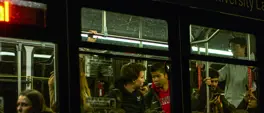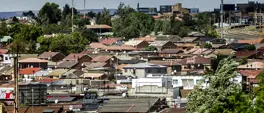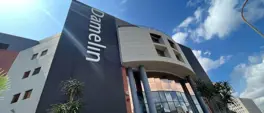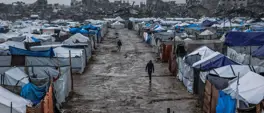NASHO worried about impact looming electricity price hikes will have on social housing tenants
Nokukhanya Mntambo
16 September 2024 | 15:28Some consumers, already reeling from the high electricity prices, may have to pay almost triple this year’s increase when new tariffs take effect in the next financial year.
JOHANNESBURG - Households, businesses and lobby groups are again anxious about looming electricity price hikes, as Eskom is rumoured to want another double-digit increase.
Some consumers, already reeling from the high electricity prices, may have to pay almost triple this year’s increase when new tariffs take effect in the next financial year.
Eskom filed its multi-year price determination revenue application to the National Energy Regulator of South Africa (NERSA) in August.
ALSO READ:
• NERSA takes legal fight against AfriForum over electricity tariffs to SCA
• DA calls for NERSA to clarify its electricity tariff determination methodology
• 'No one can afford this': CT mayor on Eskom's proposed 36% electricity price hike
Teams at NERSA are said to be assessing Eskom’s latest application for compliance before it can be considered.
In June, the Daily Maverick reported that Eskom had asked NERSA for a 36% increase in 2025, for customers it directly supplies and a 44% increase for municipal customers.
General manager at the National Association of Social Housing Organisations (NASHO), Karabelo Pooe, said that he was worried about the impact on social housing tenants and developers.
"Such a huge increase in the energy cost will be unbearable to the tenants, it will be unaffordable and could result in systematic challenges within the social housing sector because tenants will not be able to afford the increased electricity costs without government subsidies or changes."
Pooe said that social housing tenants were currently not cushioned from the high cost of municipal services, including the exorbitant price of electricity in any way.
Around 35-40% of social housing tenants earn below R6,700 per month, which Pooe believes should be enough to qualify them as indigent.
However, because they rent their homes through an "institutional landlord", they are not able to apply for indigent benefits.
"This means that although they are in effect indigent, they are expected to fund their living costs without the safety net of indigent subsidies."
The association said it was engaged in ongoing talks with the Department of Human Settlements to find ways to prevent overburdening the sector and a possible rental boycott as a result.
Get the whole picture 💡
Take a look at the topic timeline for all related articles.
Trending News
More in Local

14 December 2025 15:10
Gauteng Education says 95% of Grade 1 and Grade 8 learners placed for the 2026 academic year

14 December 2025 15:00
SA Council of Churches says Saulsville mass shooting is one of the most devastating in Tshwane

14 December 2025 14:05
Hanover Park mothers who lost loved ones unite against gang violence











